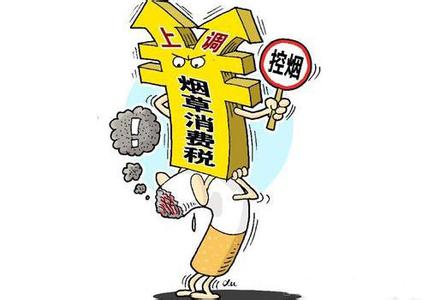A tax rise on the wholesale tobacco industry has been championed by health experts that say the price increase could reduce smoking habits and the medical costs associated with cigarettes.
衛生專家全力支持對煙草產業增稅,稱價格上漲將減少抽煙習慣,并減少因煙草所帶來的醫療費用。
On May 8, the Ministry of Finance and the State Administration of Taxation said a tobacco wholesale tax ontotal sales would see an increase from 5 percent to 11 percent.
5月8日,財政部以及國家稅務局稱煙草稅將從銷售總額的5%增加到11%。
The last time the government raised taxes in the industry was in 2009, but those levies were applied to producers and had little impact on consumption. This time around, experts say the increases could push retail prices up by 6 to 8 percent.
政府最近一次提高煙草稅還是在2009年,但是當時只對生產者征稅,對消費市場的影響很小。專家稱這次的零售價格將從6%提升到8%。

Anti-smoking campaigners have been calling on the government to discourage smoking through higher taxes, which may not only lower demand for cigarettes but will generate fiscal income. China had more than 300 million smokers at the end of last year and some 130 billion packs of cigarettes were sold in 2014 alone, health officials said.
禁煙人士一直呼吁政府通過增稅來減少吸煙,增稅不僅僅會降低需求量,還能夠增加財政收入。截止到去年年底,中國煙民超過了3000萬人,僅2014年就銷售了1億3000萬盒香煙,這是衛生組織官員所說。
The country is a member of the World Health Organization's Framework Convention on Tobacco Control, an international treaty that is intended to reduce tobacco-related diseases and deaths. In October, the WHO suggested that 70 percent of each pack of cigarettes should be taxes. Experts say the figure in China stands at 40 to 46 percent.
中國是《世界衛生組織煙草控制框架公約》的成員國,這項國際公約旨在減少因煙草所引發的疾病以及死亡。10月份,世衛組織稱每盒香煙的70%應該來源于稅。有專家稱中國的這一數字在40-46%之間。
For Caixin Online, this is Diana Bates.
這是戴安娜·貝茨為您帶來的財新新聞報道。
譯文屬可可英語原創,未經允許,不得轉載。











